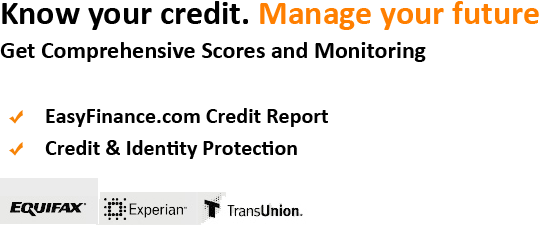Credit Score Range for 2026
When taking a loan, most people dread the moment when the credit officer tells them their Credit Score. Since your Credit Score Range determines whether you will be approved for a loan, it is important to know exactly how high it is. Managing your finances responsibly means you can maintain a good Credit Score for years, which may in turn allow you to make more independent choices in the future.
Generally speaking, the higher your Credit Score, the bigger the chance you will be approved for the credit you have applied for. At the same time, the better your Credit Score, the lower the interest rates. If you want to track your Credit Score, click HERE
How to Improve Credit Score
Improving your Credit Score takes time – there are no quick-fix solutions and no shortcuts. All actions which can potentially improve your Credit Score take time and it's important not to feel discouraged once you get started. In other words – time heals all Credit Score wounds.
Generally speaking, when attempting to improve your Credit Score you should imitate what good credit holders do need cash now.
First thing we would suggest is to pay your bills on time and in full. All overdue bills are detrimental to your Credit Score, so you should really do your best to pay them as soon as you can. If you can't pay the whole amount in one go, try to pay at least the minimum amount due.
Reducing your debt can do wonders for your Credit Score. There are both big and small steps you can take to do so - refinancing could be an option if your current mortgage rates are sky high.
Ideally, you should also keep your credit card balance low and avoid going over the line. This can be tough, but introducing small changes can really help you get financially stable again. It can be a good start to apply for $1,000 quick loan no credit check from EasyFinance.
Get great money saving tips on our blog – click HERE to find out how to spend less and save more.

Rebuilding Your Credit After Financial Setbacks
A low credit score can make borrowing more expensive and limit your access to financial products, but it is possible to rebuild over time with a structured approach. Start by making all payments on time, reducing your credit utilization, and checking your credit report regularly for errors. For those who need funds during this rebuilding phase, certain lenders offer high risk personal loans guaranteed approval that may be accessible even with a damaged credit history. While these loans can come with higher interest rates, using them responsibly can help you demonstrate positive payment behavior and gradually improve your score.
Using Credit Responsibly When You Have Bad Credit
Having bad credit does not mean you cannot borrow, but it does mean you should be more strategic about how you use credit. Look for lenders that are transparent about rates and fees, and avoid taking on more debt than you can manage. Products like personal loans bad credit no credit check can be useful for covering essential expenses while you work on improving your credit profile. The key is to borrow with a clear repayment plan in mind so you can use the loan as a stepping stone toward better credit health.
Handling Emergencies Without Damaging Your Credit
Unexpected expenses, such as medical bills or urgent home repairs, can put stress on your finances and lead to missed payments if not managed properly. This can quickly harm your credit score. In such situations, exploring options like emergency loans for bad credit can help you cover the cost without falling behind on existing obligations. Choosing a reputable lender with clear terms ensures that you can manage the repayment without creating additional credit damage.
What is a Good Credit Score
The overall Credit Score range is from 300 (which is the worst) to 850 (which is the best). A Credit Score of 750 or above is great as it gives its holder an opportunity to get low interest loans easily. If your Credit Score oscillates around 750, your only concern should be to maintain it.
680 to 699 is believed to be good result – of course you can always try to improve it, but if your Credit Score falls within this range, getting a loan should be relatively easy.
629 to 679 is average – if your Credit Score falls within this group, you should rethink your current financial strategies.
Anything lower than 580 is a poor credit rating. If your Credit Score is within this range, don't panic - there are a number of ways you can improve it. For more tips on finances, money saving and Credit Score improvement, visit our BLOG or subscribe to our NEWSLETTER.






